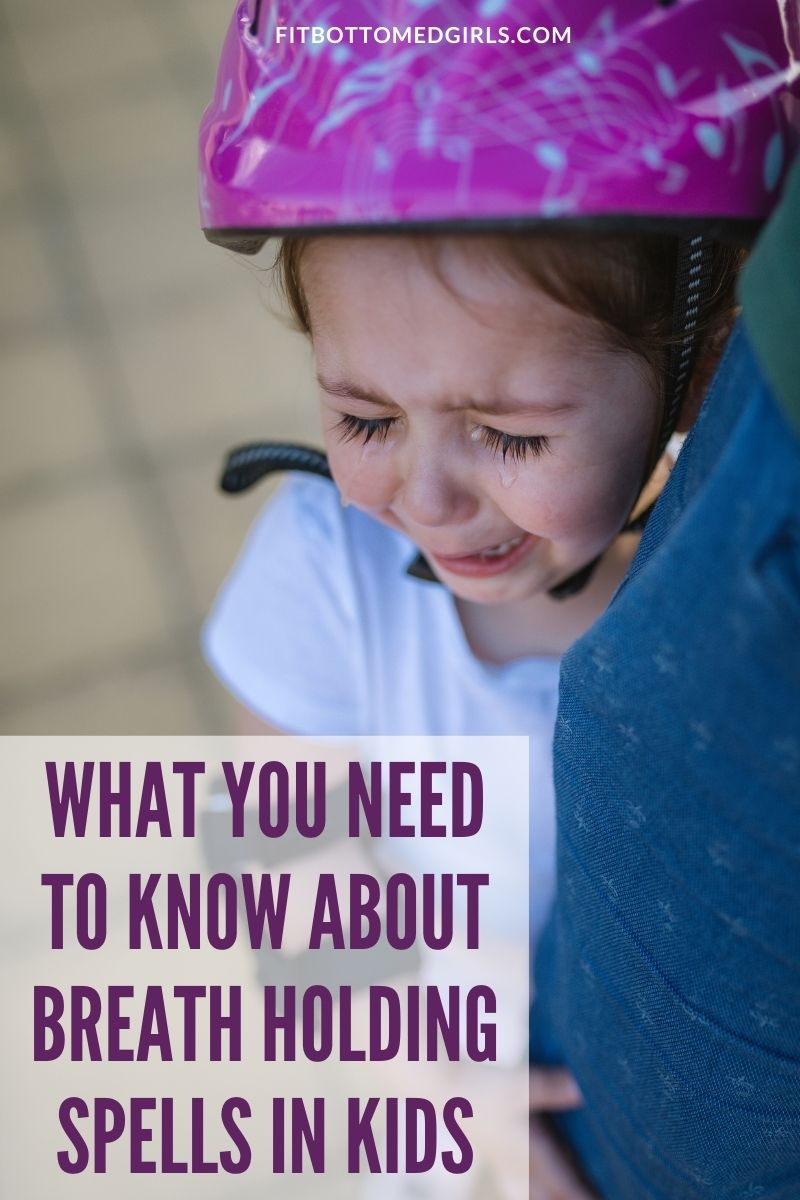There is a lot of on-the-job training when you are a parent of a young child. (Or, in my case, two small children!)
Over time, you learn how to find the perfect drinking glass, to buy clothes that they will actually wear, to force them to leave the house on time, to disperse hysteria – you know, normal everyday things.
But, as I recently learned, you are also becoming an expert in certain areas that YOU HAVE NOT SEEN.
Take, for example, a typical Wednesday night with the family. We had my parents for dinner, all the children played with pleasure, and out of nowhere one of my twin daughters was holding her breath (which I knew nothing about and hadn’t even heard of) and it scared us all.
From birth, my daughter has done what we call “quiet crying.” In general, when she is extremely upset, she will start crying and will not hear a sound for a few seconds. And then she allows that cry to break. This is something we are used to with her – and every time she does, we know she’s not just kind of upset; she is SUPER upset.
So tonight she was playing with my older daughter, and for some reason (we’re still not quite sure what was pushing her away, other than just being a little kid), she started the quiet cry. I was standing right next to her, so I reached out to pick her up and comfort her, only to notice that she was not only still shouting softly, but that her lips were blue. Literally the next second, her whole face was blue. Another second later, she fainted and limped into my arms.
I didn’t know that holding my breath was something, I was immediately afraid that she would choke or faint. My parents literally grabbed their phones to dial 911 while my husband beat her on the back and I tossed her mouth and throat for food. Then she started coughing and crying. The whole thing took about 30 seconds, if so.
It was crazy. And, terrible AF.
She got back to normal pretty quickly, so in the end we didn’t call 911 and instead immediately took her to the emergency room, where her pediatrician diagnosed him as holding his breath, which is THANKS to a pretty benign thing, but something which I had never heard of before. (Note: if your child does this – especially for the first time – visit your pediatrician SAFELY and check everything as soon as possible.)
And now you better believe that I know a lot about them! Here are some of the most important things I’ve learned about breathtaking spells.

1. They may look like seizures, but they are not. Read more about them here and talk to your child’s doctor, but breath-hold spells can look a lot like a seizure, but in fact they are an involuntary response to a sudden event that changes their breathing pattern, heart rate and blood pressure levels. which makes them faint.
2. They are very scary at the moment, but they do not hurt your child. Coming in exceptional rare cases when they faint, their body absorbs and they begin to breathe automatically.
3. They have no intention of doing so. It’s again involuntary reaction to something that upsets them, such as taking something away from them, being disappointed, telling them they can’t do something, and so on.
4. They are not uncommon. They occur in healthy children. Some children have them only once a year; others more often (even several times a day).
5. Breathing skills are most common in 2-year-olds. So, most often in young children, who are most likely to be upset because of random things.
6. Identify your child’s signs and triggers. We know that when our daughter starts crying “quietly”, we need to remind her to breathe and watch her very carefully. But it’s also helpful to pay attention to situations where your child is most likely to be upset – also known as hungry, tired or just wants to do something they can’t (for us, our want to watch Disney Short “Lava “A LOT – and when she can’t … be aware!).
5. Take strategies. Remind them to breathe – and give them prompts like blowing bubbles or blowing out birthday candles. If they do not respond, blow in their face. Sometimes that can rip them out of it. If they faint, make sure the area is clean, hold your phone close at hand, and place them to one side to maximize blood flow. If holding your breath lasts more than a minute, call 911. If it lasts more than three minutes, start CPR. (And if you don’t know how to do CPR for a young child, certify CPR.)
6. Inform your caregivers as soon as possible. Describe the incident in writing, along with all the important details of the care, including what caused the magic, how it worked, and what caregivers should do.
7. Turn off everything else. Your pediatrician should talk to you about other possible underlying conditions, such as a family history of seizures, heart problems, etc. Make sure you check everything, just in case.
8. Children outgrow them. This is the best news of all! At the age of 6 or 7, most children are left breathless, holding spells. Wow!
Read more about breath-hold spells in WebMD here.
I share this to help all other parents who have a child who does this – and I also want to hear your experience with him. This first time is so scary and it’s crazy to think that something that’s actually quite benign can be so traumatic if you don’t know what it is. If your child did this, how often do they have spells? When did they grow out of it? I will be happy to hear how this affects you and your family! – Jen